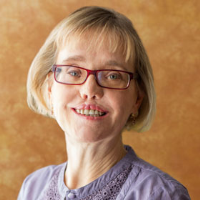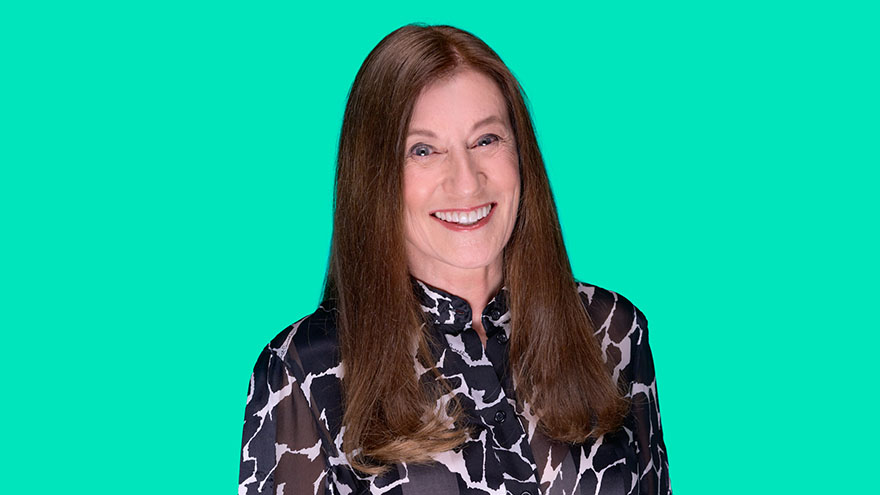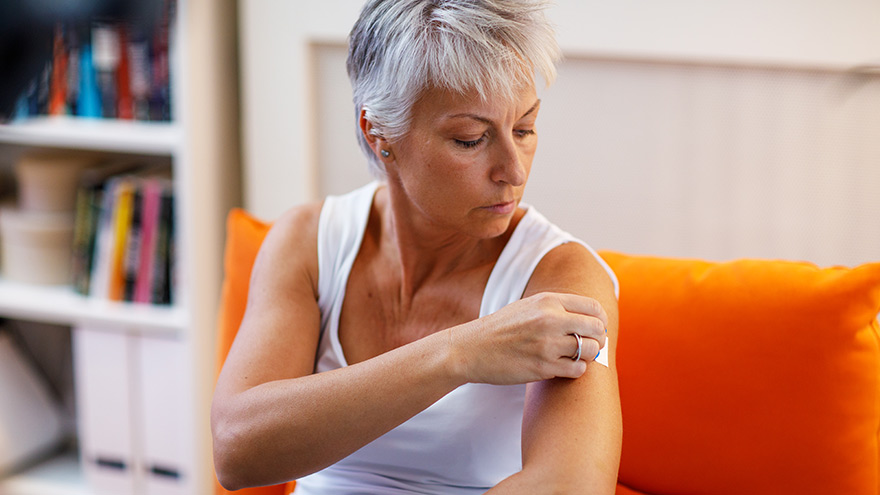Buscar
Results for 'acupuncture'
Clear-
 Mary Maul, MDMedicina generalMary Maul, MDMedicina generalGeriatric Specialty Care
Mary Maul, MDMedicina generalMary Maul, MDMedicina generalGeriatric Specialty Care -
A Tale of Life Done Right
Once upon a time … in Incline This issue’s featured member began writing the latest chapter of her life story by retiring on Lake Tahoe’s north shore in Incline Village, NV. “I had several criteria when selecting a place to retire,” says MaryBeth. “And a healthy lifestyle was number one. The people who have settled in Incline are very active with both their minds and their bodies. It’s not a stagnant population, it is unusually robust. I’ve made wonderful friendships here and we really watch out for each other, which means the world to me.” “I also wanted four seasons a year,” she continues. “And most importantly, I wanted a place that my son, Addison, would love to visit and share with me – and world-class skiing just minutes away scored extra points with both of us!” Zürich and Beyond Skiing was something MaryBeth and Addison took to with a passion while living in Zürich, Switzerland. A business move to the land of the Alps (and Swiss chocolate) provided the perfect opportunity for an international education for her son and a culturally eye-opening experience for the family. “I was unprepared for what it was going to be like living in a foreign place, and I learned a lot about empathy as a non-native and the kindness of strangers, or not. Our seven years there gave us many easily available travel adventures on the other side of the globe, and the friendships I made with people around the world have been lifelong.” “Divas” of the Garden “Tall and showy” is how MaryBeth lovingly describes the “Divas” of her garden, aka the delphiniums. Located in the sunny part of her yard, the plants explode in a variety of colors that accentuate her home’s landscaping and are a well-earned reward for her mountain gardening challenges. “The very first thing you must do when creating a new garden is amend the soil,” explains MaryBeth. “It’s not sexy, but it’s necessary! And that’s when you learn that every shovelful of “mountain” dirt is loaded with rocks of every size – it’s fantastic exercise!” And her neighbors appreciate the hard work. “I’ve made so many friends of all ages in the neighborhood while working outside in my garden,” shares MaryBeth. “They stop, chat, inquire about the plants and take photos all the time.” Then with a smile, she adds, “You could call it my art.” Aging-In to Life with Medicare At 64 and on the cusp of Medicare eligibility, MaryBeth recently tasked herself with learning what she could about the plans and options that would soon be available to her and was overwhelmed. “I made the mistake of entering my phone number on a Medicare website for “wanting more information” and had no less than 15 calls a day from health insurance brokers – from all over the country!” she exclaims. “What one person would tell me would then be questioned by the next. I eventually quit answering the phone.” However, finding a Medicare plan that meets all of her needs is still a priority. “First and foremost, since I am a traveler (at least before the pandemic) I want to have a healthcare plan that will cover me in any state,” MaryBeth explains. “I would also like a policy that allows for alternative treatments, such as acupuncture – which I’ve had great success with in the past. I know that getting a good Rx plan now will save me money down the line, and I also want to be able to see a specialist without seeing a provider first for a referral.”
-
Dr. Carilyn Hoffman's Guide to Menopause Medication & Relief
Women undergo multiple hormonal changes throughout their lives, leading to different physical and emotional experiences. Dr. Carilyn Hoffman, at Renown Women's Health, explains these confusing life stages and helps decode menopause. Perimenopause: Transitioning Towards Menopause Defined as the time "around menopause," perimenopausal symptoms are caused by hormonal fluctuations that occur as the ovarian function declines. Levels of estrogen and progesterone decrease, and follicle stimulating hormone increases. These hormonal fluctuations may cause a range of symptoms including: Irregular or abnormal periods: Initially cycles intervals vary in length by greater than 7 days, then in later stages the interval increases to greater than 60 days between cycles Hot flashes and night sweats: This is the most common symptom and 50-82% of women will have vasomotor symptoms Mood swings and memory problems Anxiety or insomnia Heart palpitations Decreased libido and vaginal dryness Weight gain and thinning hair Increased risk of urinary tract infections Decreased bone density Menopause Menopause is defined as year without a menstrual cycle and marks the timeframe when the ovaries stop making estrogen. This signifies the end of the reproductive years. The average age of menopause is 51; however, the menopausal transition can last about 8 years. This means that women in their late 30’s and 40’s may start to have symptoms of perimenopause. The worst vasomotor symptoms are typically experienced at the one-year mark since the last period. Unfortunately, some women experience symptoms throughout the entire menopausal transition. Postmenopausal After 12 months without a menstrual cycle, a woman is confirmed to be postmenopausal. This is sometimes difficult to define, as women may have had procedures that cause menstrual suppression such as a uterine ablation or hysterectomy or they may still be on contraception. Sometimes, lab work may be recommended to help determine menopausal status. However, due to the broad time period that the menopausal transition occurs and the variations in normal hormone levels throughout a cycle, lab work is not always helpful. Dr. Hoffman explains the importance of thorough counseling for patients seeking to "check their hormone levels." She emphasizes that menopause is diagnosed clinically, focusing more on the individual's symptoms rather than lab values. This approach ensures that patients understand the implications of the test results and the treatment strategy. Menopause Medical Management Medical management of symptoms should be tailored to the individual’s concerns. Abnormal Bleeding: There are a range of medications, IUDs and procedures available if the main concern is irregular or prolonged menstrual bleeding during perimenopause. Hot Flashes and Night Sweats: Hormone Replacement Therapy (HRT): HRT is currently the most effective method for relieving vasomotor symptoms. However, it's important to discuss potential risks with a healthcare provider, as HRT can increase your risk of blood clots and breast cancer. If improperly prescribed, it can also increase the risk of uterine cancer. The American College of Obstetricians and Gynecologists recommends the lowest dose for the shortest duration. Low-dose antidepressants: SSRIs/SSNIs may mitigate hot flashes and mood disorders for those who are not candidates or prefer to avoid HRT. Currently, only Paroxetine is FDA-approved for this use. Fezolinetant: This is a newly FDA-approved non-hormonal medication that works at the brain's level to treat vasomotor symptoms. Gabapentin: This is an anticonvulsant medication that has been shown in several studies to be helpful for vasomotor symptoms, but it is not currently FDA-approved. Genitourinary Symptoms of Menopause: Vaginal estrogen: Vaginal dryness and pain with intercourse due to thinning vaginal tissue is a common symptom of menopause. Vaginal estrogen is highly effective at decreasing these symptoms and has fewer side effects than systemic HRT. Ospemifene: This is a selective estrogen receptor modulator that is a non-hormonal FDA-approved medication for severe vaginal dryness. Natural Symptom Relief Strategies: Nutrition: Incorporate calcium, vitamin D, and high-quality protein to support bone health and muscle maintenance. There are limited studies on phytoestrogens (found in soy and tofu) and vasomotor symptoms. While the data doesn’t necessarily support that these phytoestrogens relieve symptoms, no detrimental effects were found and these tend to be high quality and healthy proteins. Exercise: Regular physical activity can ease menopausal symptoms and support weight management. Data doesn’t support that this reduces vasomotor symptoms, but it can be helpful in weight management and sleep quality. Beverage choices: Limiting alcohol and caffeine can help decrease the frequency of vasomotor symptoms and may also improve sleep quality. Alternative remedies: One study shows that Chinese herbal medicine and acupuncture are effective at relieving vasomotor symptoms. There is not enough evidence to recommend Black Cohosh, and it is associated with liver toxicity in high doses. Studies don’t show that St. John’s Wart or Gingko Balboa are any better than placebo. Always mention your alternative medical therapies to your provider as some do interact with other prescribed medications. By understanding and recognizing that the symptoms of menopause are real and treatable, women are empowered to manage this transition better and can maintain their well-being and quality of life. Please schedule an appointment with Renown Women’s Health if you’d like to discuss your menopause symptoms with a provider.
Read More About Dr. Carilyn Hoffman's Guide to Menopause Medication & Relief
-
Recursos sobre el cáncer
Renown’s William N. Pennington Cancer Institute is a comprehensive Cancer Care Center that understands the challenges patients face after a cancer diagnosis. It is important to offer patients and their caregivers the specialty services, treatments and cancer resources in one convenient location. Cancer treatment at Renown offers access to The Sally de Lipkau Cancer Resource Center which provides information and tailored support programs to patients. Additional resources include having a Certified Mastectomy Fitter for personalized care and partnering with Nutrition Services to customize dietary plans throughout treatment. Your care team also includes working with compassionate Social Workers who assist with emotional support and practical matters of your journey, as well as skilled nurse navigators who ensure seamless coordination of appointments.


